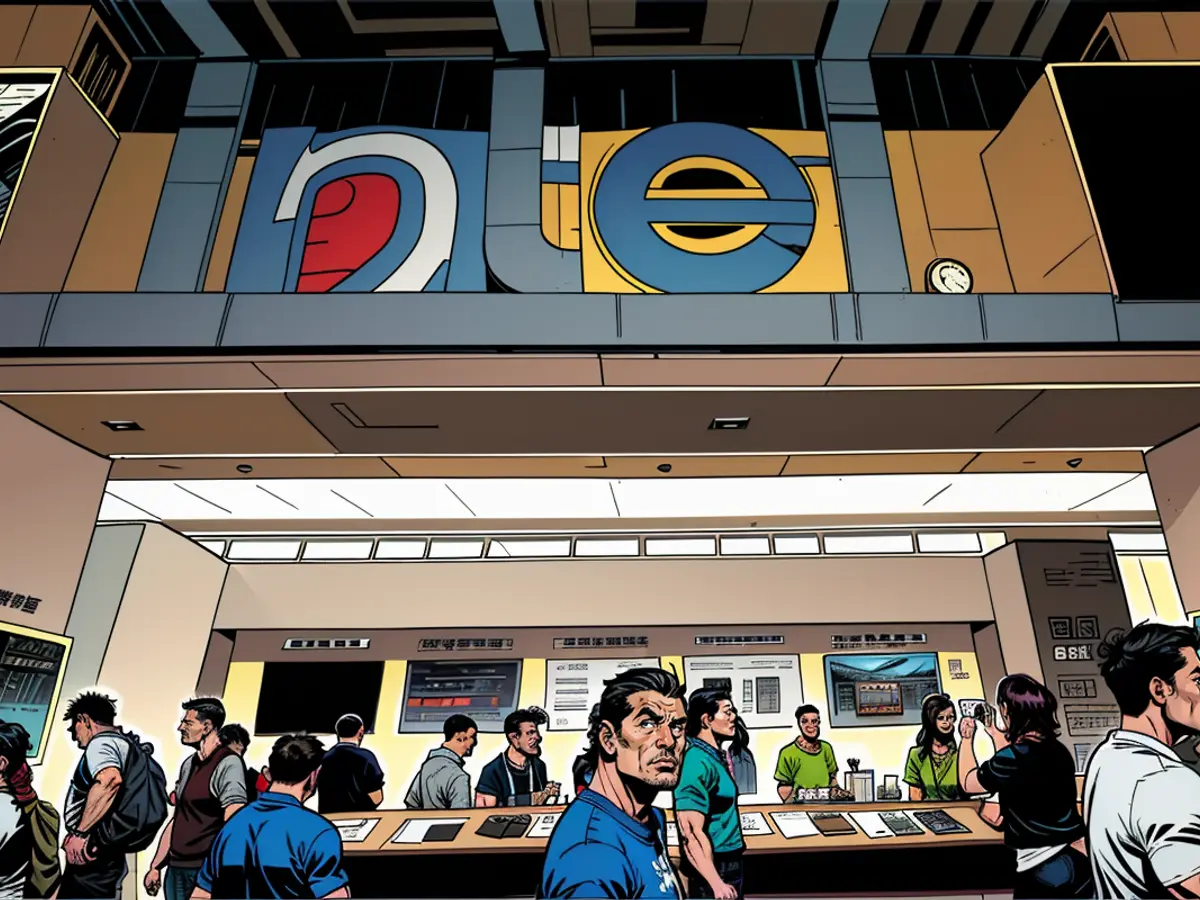Worn out, irritable, and divided: The Supreme Court braces for more commotion.
Liberal justices have been openly disagreeing with the conservative majority, asserting that they are changing the laws in America because they now have the power to do so with their new justices. Conservatives, although they have the majority in the 6-3 court, have been making fun of the left through their writing and remarks.
The court is facing growing public disapproval due to a series of self-made controversies about ethics and conflicts of interest. The latest controversy is about flags that are often associated with Trump supporters being flown at the homes of Justice Samuel Alito, which he owns.
During the last two weeks of oral arguments, tensions between the justices on both sides were clearly visible. They looked tired and sounded angry. The scheduled one-hour hearings often went on for twice as long, and several justices needed to hold their heads in their hands. Alito rolled his eyes, Kagan wore a painful expression, and Thomas rubbed his face. When Ketanji Brown Jackson, the youngest justice, asked her final questions at the end of a round of questioning, most of the others did not even look in her direction.
The overall atmosphere made it difficult for Chief Justice John Roberts to reach a unanimous decision or something close to it in the case involving Trump's demand for immunity. In past cases challenging presidential power, chief justices sought to reach unanimous rulings.
Personal disagreements can also lead to harsher written opinions. This was evident in March in the Trump ballot case from Colorado and the racially charged voting case from South Carolina.
These differences can also hinder compromises. When five justices split from the majority in concurring statements in a dispute over the Consumer Financial Protection Bureau, it confused lower court judges trying to understand the legal precedent.
The court has already put off some cases heard last fall, and they are now dealing with the new ones, including on abortion access, "bump-stock" firearm regulation, and homeless encampments.
The South Carolina racial gerrymandering case took more than seven months to resolve, and its 99 pages of conflicting opinions showed why. The justices criticized each other's legal reasoning, using sarcasm in their words.
The current disagreements are likely due to the unprecedented ideological divide that has existed since the six-justice conservative group formed in late 2020. They have been driving changes in American life, including the end of constitutional abortion rights, and are expected to transform the law in cases until the end of June.
Conservatives will also have control of any emergency litigation regarding ballot rules leading up to the November elections.
Liberal justices have been trying to argue against the conservative majority, even in cases like the Louisiana voting rights case. When the court allowed Louisiana officials to use a map with a second majority-Black congressional district, the liberal justices dissented. They probably wanted to have two majority-Black districts (out of Louisiana's six) as a special US district court had found that the state had diluted the ability of Blacks to elect a candidate of their choice.
However, the liberals chose to fully distance themselves from the majority's decision, maybe because they were suspicious of how the majority might use the easily manipulated Purcell principle in potential lawsuits over discriminatory ballot rules during the upcoming elections.
This situation reminded us of the Colorado case where the court majority allowed Trump to stay on the ballot. In both cases, the differences were not that significant, but the liberals decided to emphasize the disagreements. The conservative justice Amy Coney Barrett criticized the liberals when she wrote in the March decision, "In my opinion, this is not the time to amplify disagreement with stridency. The Court has resolved a politically charged issue during a Presidents' election. Particularly in this situation, writings on the Court should lower the national temperature, not increase it."
But the liberals did not want to send that message.
Still, all nine justices had agreed that states do not have the power to enforce the 14th Amendment's anti-insurrectionist provision against a candidate for the presidency and other federal offices. But the five-justice conservative bloc went further and stated that only specific legislation passed by Congress could activate the provision.
This division had a negative impact on the atmosphere during the last two weeks of oral arguments. It also makes it harder for Chief Justice Roberts to reach a unanimous decision in controversial cases. The justices also seem less respectful of each other's views, making the final negotiations more difficult. Overall, this discord can lead to harsher written opinions and may create confusion in how the law is applied in future cases.
In the objection raised by the left-leaning justices, they used an earlier quote by Roberts against his majority: "If unnecessary steps are needed to resolve a case, then it is necessary not to take them." After this, they referenced a dissenting opinion from the controversial 2000 case, Bush v. Gore: "What it achieves today, the Supreme Court should have left unfinished."
The battle over a congressional map for South Carolina led to the latest ideological conflict. By a 6-3 majority decision, they upheld a district that favored Republicans, despite opponents' claims that races were used unfairly in creating the district lines. According to the lower US court, this was deliberately designed to "bleach African American voters" from participating in the district.
Dissenting liberals were quick to point out that reversing the lower court's decision went against previous Supreme Court ruling in the 2017 Cooper v. Haris case, issued before the current far-right majority came into power.
Kagan wrote regarding this: "We've met this situation before, but it was back then as a dissent."
In response, Alito, who penned the majority opinion, dismissed the criticism from the dissenters, claiming that their argument had no merit.
There's been renewed attention on Alito lately due to flags that indicate support for Trump supporters who protested against Biden's election results in 2020. The flags were spotted at his homes in Virginia and New Jersey. Alito has refused to address these concerns, as the court is currently deliberating on two cases related to Trump-related "Stop the Steal" movement.
A flag symbolizing resistance to government overreach, called "Appeal to Heaven," was also reportedly seen at Alito's vacation home on the Jersey shore. Alito declined to comment on this matter.
During the recent oral arguments, the judges had a lot of conversations with lawyers, which were more targeted at their fellow justices.
In a heated debate over a city's fines for homeless individuals who camp on public property, Kagan and Roberts seemed uncomfortable with each other's views.
A controversy arose around Grants Pass, Oregon's anti-camping ordinances, when the lower US appeals court determined that the city's laws penalized homeless people for "impromptu sleep with rudimentary protection from the elements" when they had no alternative.
Kagan addressed the city's lawyer, questioning the legality of penalizing an individual for sleeping when they had no other choice but to live on the streets, adding "For a homeless person with nowhere to go, sleeping in public is similar to breathing in public."
Roberts attempted to steer the conversation away from treating sleeping as a basic human need, and questioned a different lawyer, Edwin Kneedler, from the US Justice Department about a potential break-in to obtain food.
Kneedler stated that the person "would certainly be subject to prosecution" because "breaking into a store is a common crime, different from sleeping, as in this case."
Roberts continued to challenge Kagan's perspective on sleeping being a basic need but was again deflected by Kagent's insistence that the city's actions on homeless persons violated the Eighth Amendment.
On the day of the court case, there was no sign of any upheaval, with both Alito and the rest of the justices appearing professional as usual.
In late April, when lawyer Joshua Turner represent Idaho's abortion ban in court against the Biden admin's policy ensuring emergency abortion care, the three liberal justices targeted him with a barrage of queries. They challenged his excuses and scrutinized potential issues for pregnant women in urgent medical cases.
Sotomayor, Kagan, and Jackson didn't align completely; each interfered with Turner's responses to the others' inquiries.
"Essentially," Sotomayor argued to Turner at one instance, "you're saying there's no federal law prohibiting a state from refusing to do an abortion, even if a woman will perish."
The Idaho state attorney contested this decisive assertion and maintained that all states should include "life-saving exclusions." Sotomayor pushed back, stating his position could end in detrimental consequences for women in dire health crises.
Turner attempted to refute her argument, but Sotomayor contradicted him again.
Roberts, annoyed, shut down Sotomayor and implored Turner, "Can I have your response?"
This pause offered a brief respite, but Jackson instantly interjected, and all justices, both liberal and conservative, continued to barrage Turner with questions.
"To be honest," Alito expressed to Turner, "I believe you didn't receive many chances to answer some hypotheticals."


Read also:
- Year of climate records: extreme is the new normal
- Precautionary arrests show Islamist terror threat
- UN vote urges Israel to ceasefire
- SPD rules out budget resolution before the end of the year
The media has been covering the flags at Justice Samuel Alito's homes, which are often associated with Trump supporters, adding fuel to the divisiveness within the Supreme Court.
The liberal justices have been critical of the conservative majority's interpretation of the 14th Amendment's anti-insurrectionist provision, using past quotes and dissenting opinions to support their argument.
Source: edition.cnn.com





